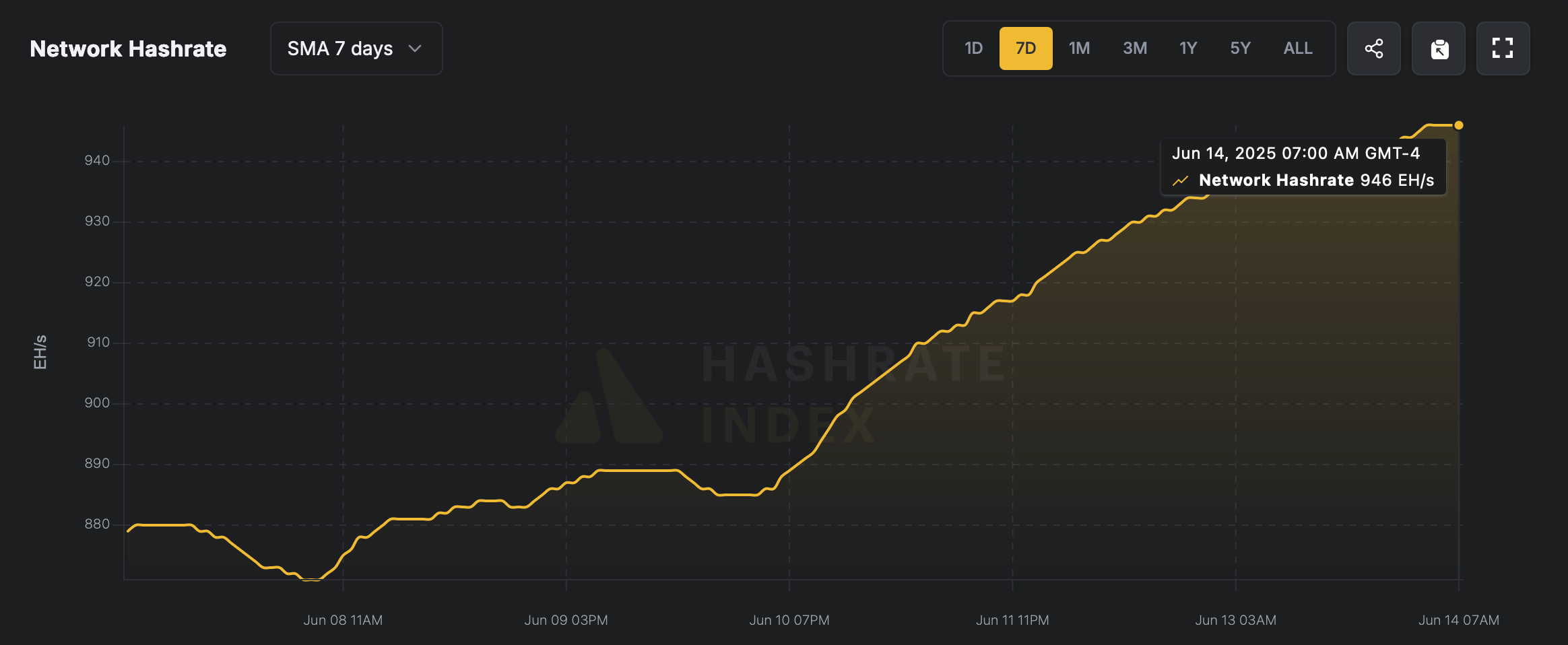At block peak 901,152 on Friday, the Bitcoin community logged its twelfth problem adjustment of the 12 months, slipping a slight 0.45%, which lowered the issue to 126.41 trillion. The following day, Saturday, miners pushed the community’s computational energy to one more peak, eclipsing the earlier excessive recorded final month.
Problem Drops, Hashrate Soars, however Miners Nonetheless Really feel the Warmth
On June 14, 2025, Bitcoin’s hashrate carved out a recent milestone, hitting a peak of 946 exahash per second (EH/s) based mostly on the seven-day easy transferring common (SMA). The prior all-time excessive (ATH) was set on Could 31, when the community reached 943 EH/s. As of 8 a.m. Japanese on Saturday, the hashrate measured 944.84 EH/s.

Bitcoin hashrate on Saturday, June 14, 2025, in accordance with hashrateindex.com.
This newest ATH arrived simply after a slight problem adjustment, a 0.45% dip that nudged the metric down from 126.98 trillion to 126.41 trillion. Though this shift supplied minor aid, the issue stays elevated—persevering with to weigh closely on miners. The following recalibration is projected for round June 29, 2025. Of the 12 problem adjustments thus far this 12 months, eight have been upward revisions whereas 4 marked downward strikes.
In the meantime, mining income has declined in comparison with ranges seen 30 days in the past, with the hashprice slipping from a each day yield of $55.53 per petahash per second (PH/s) on Could 14 to the present $52.92 per PH/s. Prior to now 24 hours, miners earned a median of three.17 BTC from each block subsidies and transaction charges mixed, with charges contributing simply 1.32% to the full haul.
In the meanwhile, block instances are lagging behind the perfect 10-minute common, and the following problem adjustment—slated for June 29—is tentatively projected to dip by about 7.74%. Naturally, that determine is fluid and prone to shift vastly by the point the change is applied. Particularly if the hashrate holds at elevated ranges and block manufacturing begins to speed up.





